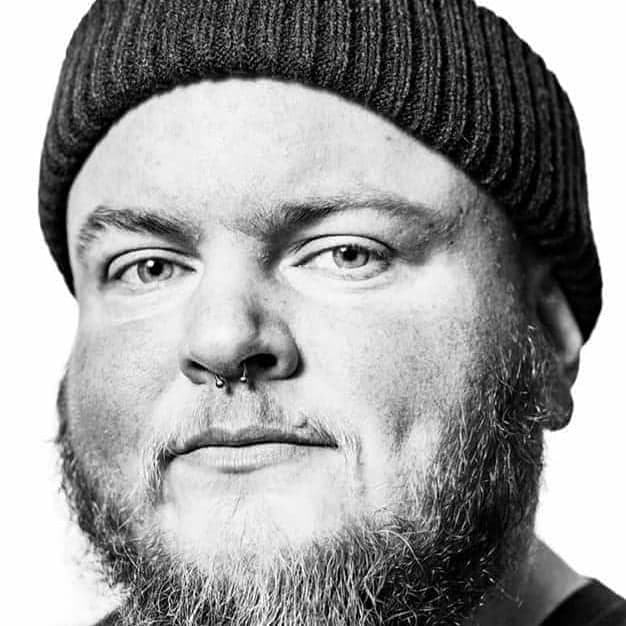Trans Awareness Week: Verity Smith on inclusion in sport

Since sharing his story of being a rugby player who’s trans, Verity Smith has become an influential voice for inclusion. Now Mermaids’ first sport officer, he writes to mark Trans Awareness Week…
By Verity Smith

This Trans Awareness Week, I’ve been reflecting on what has been a year of immense challenges when it comes to sport.
I actually went into 2020 in a good frame of mind and the year started well. Working as I do with IGR (International Gay Rugby), we were looking at inclusion policies and generally, it felt we were having more positive conversations about trans participation. But as the year has gone on, it’s been mentally draining – and in some sports, particularly rugby, it’s not getting better, it’s getting worse.
On that front, the big hurdle presented this year has been World Rugby deciding to ban trans women from women’s contact rugby. I attended the governing body’s Transgender Workshop in London back in February as a representative of IGR (International Gay Rugby) but we were only there as observers – it was the same for Sport England. We didn’t get given a speaking slot, which was hard to take as there was so much we wanted to say about the actual experiences of trans women playing rugby, of which there are very few indeed.
There was a lot of research presented, but none of it was on trans athletes. Instead, it stemmed from cis elite female and male athletes, and it came with an assumption that trans women fall under the category of cis elite males. There is in fact no research on trans women within the rugby environment. Despite this crucial lack of detail, World Rugby approved its guidelines in October.
No one is saying we don’t want sport to be safe and fair. Instead, we are saying we need research that studies trans athletes and does so without making assumptions. That research also needs to protect the athletes themselves, as they would need to out themselves in order to be part of it and there’s a lot they would stand to lose by doing that.
It’s not just trans women who are affected. Trans men now have to sign a waiver to say it’s their own responsibility if they play on a men’s team. It means that if you’re AFAB (assigned female at birth), you would feel like you’re being seen as less of a player.

As someone who is passionate about rugby, it’s been immensely disheartening for myself particularly, and it’s caused a huge amount of upset throughout the trans and allies community. These kinds of decisions and the conversations that accompany them – which can lead to ‘policing’ what women’s bodies should look like – do have an impact on engagement at a lower level, particularly when high-profile people who oppose trans inclusion make sweeping statements and get their opinions amplified by certain sections of the media.
That in turn affects others’ mental health and some trans people, of all ages, simply give up on sport altogether when they see this talk increasing. Maybe they had looked up to these people for their achievements or had seen them as role models, only to then feel let down by them.
In September, I joined the charity Mermaids as their first dedicated Trans Inclusion in Sports Youth Worker. It’s a challenging role but it’s one I’ve quickly grown to love – I get to discuss issues around inclusion with national governing bodies, and work with them on policy, all with the aim of getting kids who are trans and gender diverse more active in sports environments. I know from experience that this can be life-changing for them.
Often the young people we talk to are asking us questions about sport, such as ‘am I allowed to play?’ and ‘will someone like me be supported?’
I was once approached by a young trans male who had saved up their money to buy a pair of rugby boots, and had gone to their local club only to then be turned away. I was able to put them in touch with one of the RFU officers in London and that person will now find them somewhere to play where they feel wanted, because there is an age grade trans policy in place. A lot of people still don’t know this exists, or what’s possible in other sports. For anyone who wants more information, they can always contact me at Mermaids and I’ll do my best to find out what’s available in their area.
My own participation in sport has changed dramatically in recent years. I first shared my story of being a rugby player who’s a trans man back in July 2018 in The Rugby Journal; then the following December, I won a grassroots rugby competition called ‘Prop Star’. But only a few months later, I suffered a serious spinal injury in a rugby tackle and was forced to hang up my boots. I’ve had a lot of operations since then but I was able to play wheelchair rugby league for a time and I’m looking to get back into that soon, now that I’ve stopped having to have surgery – and I’ve just got a new wheelchair too.
What’s most important for me is that I now get to play sport as myself, as Verity. I get to be proud of who I am. For over 20 years, I had to hide who I was – having to wear women’s kits, for example – and that’s made me want to constantly push and fight for other people. I am here, I do exist, and I should be allowed to play, because it’s OK to be who you are. In my case, I’m actually a lot smaller than I once was due to having been on testosterone, which is not what people expect. There are a lot of misconceptions and generalisations made about trans athletes.
My mantra is always ‘education not discrimination’ – we need to educate more. One of the things in women’s rugby at the moment are these claims of a 20-30% increase in the likelihood of causing injuries if you’re trans, but that is an assumption that has been made about trans women rugby players – it’s not taken from any study that has assessed them scientifically, because that study doesn’t exist.
The thing I’ve learned most is to speak up – I have a voice, so why should I stay quiet when I know bans like World Rugby’s are unnecessary? We’re worried as a community about what might come next, but unless we speak up for what we believe in, things won’t change for the better.
Trans people have always existed, and banning them from sport is not the answer. We need NGBs to take a stand for inclusion, to push for greater awareness and help to fund more research. Only with this combination can we offer more pathways that lead towards genuinely inclusive sports spaces for all.
Thank you to Verity– you can follow him on Twitter at @VeritySmith19, and on Instagram at @smithverity.
For more information about Mermaids, visit their website.
Sports Media LGBT+ is a network, advocacy and consultancy group that is helping to build a community of LGBT+ people and allies in sport. We’re here to help. Learn more about us on our About page; to get in touch, Contact Us here.


